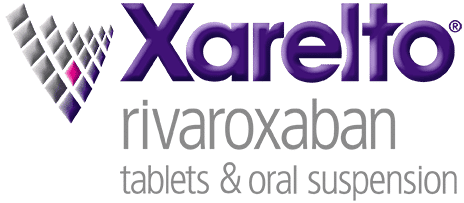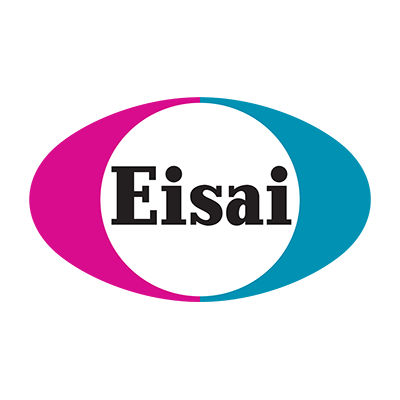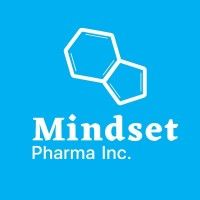预约演示
更新于:2026-02-02
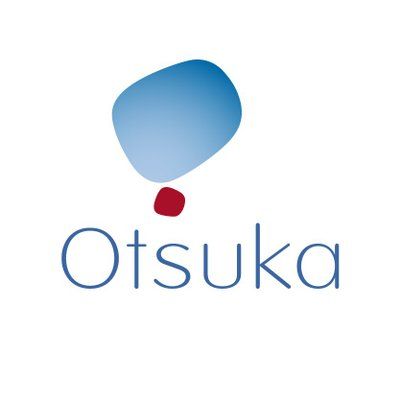
Otsuka America Pharmaceutical, Inc.
更新于:2026-02-02
概览
标签
血液及淋巴系统疾病
肿瘤
小分子化药
疾病领域得分
一眼洞穿机构专注的疾病领域
暂无数据
技术平台
公司药物应用最多的技术
暂无数据
靶点
公司最常开发的靶点
暂无数据
| 排名前五的药物类型 | 数量 |
|---|---|
| 小分子化药 | 4 |
| 化学药 | 1 |
关联
5
项与 Otsuka America Pharmaceutical, Inc. 相关的药物靶点 |
作用机制 Bcl-2抑制剂 |
原研机构 |
非在研适应症 |
最高研发阶段批准上市 |
首次获批国家/地区 美国 |
首次获批日期2016-04-11 |
靶点 |
作用机制 DNMT1抑制剂 [+1] |
原研机构 |
最高研发阶段批准上市 |
首次获批国家/地区 美国 |
首次获批日期2006-05-02 |
作用机制 5-HT2A receptor激动剂 |
在研适应症 |
非在研适应症- |
最高研发阶段临床1期 |
首次获批国家/地区- |
首次获批日期- |
80
项与 Otsuka America Pharmaceutical, Inc. 相关的临床试验NCT05190744
A Multi-center, Open-Label, Exploratory Study to Assess the Efficacy of PB in Decreasing the Urine Output and Increasing the Urine Osmolality in Patients With Hereditary Nephrogenic Diabetes Insipidus, Patients With Autosomal Dominant Polycystic Kidney Disease Treated With Tolvaptan, And Severely Polyuric Patients With Previous Lithium Administration (Serendipity-PB1)
The purpose of this research is to study the effectiveness and safety of the medication PB in slowing the frequent urination related to tolvaptan as long-term treatment of Autosomal Dominant Polycystic Kidney Disease (ADPKD), or frequent urination related to inherited nephrogenic diabetes insipidus as an inherited condition or as an acquired condition from prior treatment with lithium.
开始日期2022-09-01 |
申办/合作机构 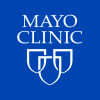 Mayo Clinic Mayo Clinic [+1] |
NCT04194528
Feasibility of a Digital Medicine Program in Optimizing Opioid Pain Control in Cancer Patients
This is a feasibility study to assess the use of a Digital Medicine Program (consisting of an FDA-approved ingestible sensor co-encapsulated with oxycodone/acetaminophen (5 mg/325 mg), a small wearable patch, and a mobile application) in cancer patients with metastatic disease experiencing uncontrolled pain.
开始日期2020-01-22 |
申办/合作机构 |
NCT04088955
A Pragmatic, Non-Interventional Study of DigiMeds™ in Combination With Standard of Care for Treatment of Patients With Cancer
DigiMeds™ are medications with FDA-approved ingestible sensors (IS), a wearable sensor patch (patch), and a mobile app, which records time-stamped medication type and dose alongside biometric activity.
The aim of this registry is to collect and analyze data on the use of DigiMeds™ and a digital feedback system on medication adherence, patient-provider communication, and data-driven optimization of therapy for cancer patients.
The aim of this registry is to collect and analyze data on the use of DigiMeds™ and a digital feedback system on medication adherence, patient-provider communication, and data-driven optimization of therapy for cancer patients.
开始日期2019-09-06 |
申办/合作机构 |
100 项与 Otsuka America Pharmaceutical, Inc. 相关的临床结果
登录后查看更多信息
0 项与 Otsuka America Pharmaceutical, Inc. 相关的专利(医药)
登录后查看更多信息
117
项与 Otsuka America Pharmaceutical, Inc. 相关的文献(医药)2024-02-01·Neuroscience
Effect of a single psilocybin treatment on Fos protein expression in male rat brain
Article
作者: Atkinson, Jason ; Funk, Douglas ; Araujo, Joseph ; Slassi, Malik ; Feng, Daniel ; Higgins, Guy A ; Lê, Anh ; Lanthier, James ; Lau, Winnie
Psilocybin has received attention as a treatment for depression, stress disorders and drug and alcohol addiction. To help determine the mechanisms underlying its therapeutic effects, here we examined acute effects of a range of behaviourally relevant psilocybin doses (0.1-3 mg/kg SC) on regional expression of Fos, the protein product of the immediate early gene, c-fos in brain areas involved in stress, reward and motivation in male rats. We also determined the cellular phenotypes activated by psilocybin, in a co-labeling analysis with NeuN, a marker of mature neurons, or Olig1, a marker of oligodendrocytes. In adult male Sprague-Dawley rats, psilocybin increased Fos expression dose dependently in several brain regions, including the frontal cortex, nucleus accumbens, central and basolateral amygdala and locus coeruleus. These effects were most marked in the central amygdala. Double labeling experiments showed that Fos was expressed in both neurons and oligodendrocytes. These results extend previous research by determining Fos expression in multiple brain areas at a wider psilocybin dose range, and the cellular phenotypes expressing Fos. The data also highlight the amygdala, especially the central nucleus, a key brain region involved in emotional processing and learning and interconnected with other brain areas involved in stress, reward and addiction, as a potentially important locus for the therapeutic effects of psilocybin. Overall, the present findings suggest that the central amygdala may be an important site through which the initial brain activation induced by psilocybin is translated into neuroplastic changes, locally and in other regions that underlie its extended therapeutic effects.
2023-04-01·JAMA oncology
The MaxCombo Test Severely Violates the Type I Error Rate—Reply
Letter
作者: Roychoudhury, Satrajit ; Mukhopadhyay, Pralay ; Anderson, Keaven M.
Our website uses cookies to enhance your experience. By continuing to use our site, or clicking "Continue," you are agreeing to our Cookie Policy | Continue JAMA Oncology HomeNew OnlineCurrent IssueFor Authors Podcast Journals JAMA JAMA Network Open JAMA Cardiology JAMA Dermatology JAMA Health Forum JAMA Internal Medicine JAMA Neurology JAMA Oncology JAMA Ophthalmology JAMA Otolaryngology–Head & Neck Surgery JAMA Pediatrics JAMA Psychiatry JAMA Surgery Archives of Neurology & Psychiatry (1919-1959) JN Learning / CMESubscribeJobsInstitutions / LibrariansReprints & Permissions Terms of Use | Privacy Policy | Accessibility Statement 2023 American Medical Association. All Rights Reserved Search All JAMA JAMA Network Open JAMA Cardiology JAMA Dermatology JAMA Forum Archive JAMA Health Forum JAMA Internal Medicine JAMA Neurology JAMA Oncology JAMA Ophthalmology JAMA Otolaryngology–Head & Neck Surgery JAMA Pediatrics JAMA Psychiatry JAMA Surgery Archives of Neurology & Psychiatry Input Search Term Sign In Individual Sign In Sign inCreate an Account Access through your institution Sign In Purchase Options: Buy this article Rent this article Subscribe to the JAMA Oncology journal
2022-09-01·JAMA Oncology
Log-Rank Test vs MaxCombo and Difference in Restricted Mean Survival Time Tests for Comparing Survival Under Nonproportional Hazards in Immuno-oncology Trials
Review
作者: Ye, Jiabu ; Halabi, Susan ; Roychoudhury, Satrajit ; Chappell, Richard J. ; Mukhopadhyay, Pralay ; Anderson, Keaven M. ; Rubin, Eric H.
Importance:
The log-rank test is considered the criterion standard for comparing 2 survival curves in pivotal registrational trials. However, with novel immunotherapies that often violate the proportional hazards assumptions over time, log-rank can lose power and may fail to detect treatment benefit. The MaxCombo test, a combination of weighted log-rank tests, retains power under different types of nonproportional hazards. The difference in restricted mean survival time (dRMST) test is frequently proposed as an alternative to the log-rank under nonproportional hazard scenarios.
Objective:
To compare the log-rank with the MaxCombo and dRMST in immuno-oncology trials to evaluate their performance in practice.
Data Sources:
Comprehensive literature review using Google Scholar, PubMed, and other sources for randomized clinical trials published in peer-reviewed journals or presented at major clinical conferences before December 2019 assessing efficacy of anti-programmed cell death protein-1 or anti-programmed death/ligand 1 monoclonal antibodies.
Study Selection:
Pivotal studies with overall survival or progression-free survival as the primary or key secondary end point with a planned statistical comparison in the protocol. Sixty-three studies on anti-programmed cell death protein-1 or anti-programmed death/ligand 1 monoclonal antibodies used as monotherapy or in combination with other agents in 35 902 patients across multiple solid tumor types were identified.
Data Extraction and Synthesis:
Statistical comparisons (n = 150) were made between the 3 tests using the analysis populations as defined in the original protocol of each trial.
Main Outcomes and Measures:
Nominal significance based on a 2-sided .05-level test was used to evaluate concordance. Case studies featuring different types of nonproportional hazards were used to discuss more robust ways of characterizing treatment benefit instead of sole reliance on hazard ratios.
Results:
In this systematic review and meta-analysis of 63 studies including 35 902 patients, between the log-rank and MaxCombo, 135 of 150 comparisons (90%) were concordant; MaxCombo achieved nominal significance in 15 of 15 discordant cases, while log-rank did not. Several cases appeared to have clinically meaningful benefits that would not have been detected using log-rank. Between the log-rank and dRMST tests, 137 of 150 comparisons (91%) were concordant; log-rank was nominally significant in 5 of 13 cases, while dRMST was significant in 8 of 13. Among all 3 tests, 127 comparisons (85%) were concordant.
Conclusions and Relevance:
The findings of this review show that MaxCombo may provide a pragmatic alternative to log-rank when departure from proportional hazards is anticipated. Both tests resulted in the same statistical decision in most comparisons. Discordant studies had modest to meaningful improvements in treatment effect. The dRMST test provided no added sensitivity for detecting treatment differences over log-rank.
205
项与 Otsuka America Pharmaceutical, Inc. 相关的新闻(医药)2026-01-27
PRINCETON, N.J. & TOKYO--(BUSINESS WIRE)--Otsuka Pharmaceutical Development & Commercialization, Inc. and Otsuka Pharmaceutical Co., Ltd. (Otsuka) today announce that the U.S. Food and Drug Administration (FDA) has accepted for priority review the New Drug Application (NDA) for centanafadine, an investigational, once-daily extended release capsule and the first-in-class norepinephrine, dopamine, and serotonin reuptake inhibitor (NDSRI), for the treatment of attention-deficit hyperactivity disorder (ADHD) in children, adolescents, and adults. The Prescription Drug User Fee Act (PDUFA) target action date is set for July 24, 2026.
The NDA is supported by results from four pivotal Phase 3 clinical trials evaluating the efficacy and safety of centanafadine across patient populations1,2,3. In these trials, centanafadine demonstrated statistically significant and clinically meaningful improvements in ADHD symptoms compared with placebo, as measured by the ADHD Rating Scale – 5 (ADHD-RS-5) in adolescents and children, and the ADHD Investigator Symptom Rating Scale (AISRS) in adults. Centanafadine was generally well tolerated across studies, with the most common adverse events including decreased appetite, nausea, rash, fatigue, abdominal pain, and somnolence in children and adolescents, and decreased appetite and headache in adults1,2,3.
“ADHD manifests differently across patients, highlighting the importance of having multiple therapeutic approaches available,” said John Kraus, M.D., Ph.D., executive vice president and chief medical officer, Otsuka Pharmaceutical Development & Commercialization, Inc. “The FDA’s acceptance and priority review designation of our NDA for centanafadine marks an important milestone in our effort to bring forward a novel treatment option for people living with ADHD. If approved, centanafadine would offer a first-in-class NDSRI option designed to support broad symptom management. We extend our sincere gratitude to the patients, caregivers, and investigators whose participation made this milestone possible.”
Although historically seen as a childhood disorder, research suggests that many individuals diagnosed with ADHD in childhood continue to experience symptoms into adulthood, with some patients experiencing significant impairment.
About Attention-Deficit Hyperactivity Disorder (ADHD)
ADHD is a chronic neurodevelopmental disorder characterized primarily by impairments in attention, hyperactivity, and impulsivity4. It affects approximately 7 million children in the U.S. and an estimated 15.5 million adults, according to the Centers for Disease Control and Prevention (CDC)5,6.
About Centanafadine
Centanafadine is a first-in-class norepinephrine, dopamine, and serotonin reuptake inhibitor (NDSRI). Clinical studies have shown that centanafadine significantly reduces core symptoms of ADHD in children, adolescents, and adults. Clinical and preclinical data suggest centanafadine showed a favorable safety and tolerability profile and low potential for abuse.
About Otsuka
Otsuka Pharmaceutical Co., Ltd. is a global healthcare company with the corporate philosophy: Otsuka–people creating new products for better health worldwide. Otsuka researches, develops, manufactures, and markets innovative products, with a focus on pharmaceutical products to meet unmet medical needs and nutraceutical products for the maintenance of everyday health.
In pharmaceuticals, Otsuka is a leader in the challenging areas of mental, kidney, and cardiovascular health and has additional research programs in oncology and on several under-addressed diseases including tuberculosis, a significant global public health issue. These commitments illustrate how Otsuka is a “big venture” company at heart, applying a youthful spirit of creativity in everything it does.
Otsuka established a presence in the U.S. in 1973 and today its U.S. affiliates include Otsuka Pharmaceutical Development & Commercialization, Inc. (OPDC) and Otsuka America Pharmaceutical, Inc. (OAPI). These two companies’ 2,250 employees in the U.S. develop and commercialize medicines in the areas of mental health and nephrology, using cutting-edge technology to address unmet healthcare needs.
OPDC and OAPI are indirect subsidiaries of Otsuka Pharmaceutical Co., Ltd., which is a subsidiary of Otsuka Holdings Co., Ltd. headquartered in Tokyo, Japan. The Otsuka group of companies employed 35,340 people worldwide and had consolidated sales of approximately USD 14.7 billion in 2024.
All Otsuka stories start by taking the road less traveled. Learn more about Otsuka in the U.S. at www.otsuka-us.com and connect with us on LinkedIn and Twitter at @OtsukaUS. Otsuka Pharmaceutical Co., Ltd.’s global website is accessible at https://www.otsuka.co.jp/en/.
References
Ward, Caroline L., et al. “Efficacy and safety of centanafadine for ADHD treatment in children: A randomized clinical trial.” Pediatrics Open Science , vol. 1, no. 3, 1 July 2025, pp. 1–11, https://doi.org/10.1542/pedsos.2024-000349 .
Ward, Caroline L., Ann C. Childress, et al. “Centanafadine for attention-deficit/hyperactivity disorder in adolescents: A randomized clinical trial.” Journal of the American Academy of Child & Adolescent Psychiatry , July 2025, https://doi.org/10.1016/j.jaac.2025.06.023 .
Adler, Lenard A., et al. “Efficacy, safety, and tolerability of Centanafadine sustained-release tablets in adults with attention-deficit/hyperactivity disorder.” Journal of Clinical Psychopharmacology , vol. 42, no. 5, 2 June 2022, pp. 429–439, https://doi.org/10.1097/jcp.0000000000001575 .
American Psychiatric Association (2022). Diagnostic and Statistical Manual of Mental Disorders (5 th ed., text rev).
“Data and Statistics on ADHD.” Centers for Disease Control and Prevention, Centers for Disease Control and Prevention, www.cdc.gov/adhd/data/index.html .
“Facts about ADHD in Adults.” Centers for Disease Control and Prevention, Centers for Disease Control and Prevention, www.cdc.gov/adhd/php/adults/ .
JANUARY 2026
26US25EBC0003
临床3期申请上市临床结果优先审批
2025-12-21
Repinatrabit (JNT-517) is an investigational, oral, small-molecule compound; it received orphan drug designation and rare pediatric disease designation for the treatment of PKU from the U.S. FDA. There is an unmet need for additional treatment options for PKU, a genetic disorder impacting approximately 1 in 24,000 individuals globally.
PRINCETON, N.J. and TOKYO, JAPAN – December 21, 2025 – Otsuka Pharmaceutical Development & Commercialization, Inc. and Otsuka Pharmaceutical, Co. Ltd. (Otsuka) announces today the initiation of the global Phase 3 clinical trial evaluating repinatrabit (JNT-517), an investigational, oral, small-molecule compound for the treatment of phenylketonuria (PKU). The goal of the PheORD Phase 3, randomized study is to assess the efficacy, safety and tolerability of oral repinatrabit, administered twice a day, in participants with PKU.1 Repinatrabit received orphan drug designation and rare pediatric disease designation for the treatment of PKU from the U.S. Food and Drug Administration (FDA).
PKU is a genetic disorder that leads to an accumulation of amino acid phenylalanine (Phe) in the blood, which, if left untreated, can adversely affect brain development and lead to intellectual disability and other serious health problems. The condition is estimated to impact approximately 1 in 24,000 individuals globally, including approximately 1 in 10,000 individuals in the U.S. annually. 2 Current treatment involves dietary therapy that restricts intact protein intake to limit Phe consumption and supplements other essential amino acids through a specialized medical formula.3 However, strict dietary restrictions leave many patients without adequate treatment, highlighting the need for new therapeutic approaches for PKU.3
“Despite adherence to the standard low-protein diet therapy, many people living with PKU continue to face challenges maintaining phenylalanine control, and they experience clinical symptoms such as executive function impairment, mood regulation difficulties, and other mental health issues,” said John Kraus, M.D., Ph.D., executive vice president and chief medical officer, Otsuka. “Patients also face social and emotional challenges, including feelings of isolation and stigma related to dietary restrictions. We are committed to addressing the significant unmet needs of the global PKU community and delivering groundbreaking advancements.”
Interim analysis data from the Phase 1b/2 study demonstrated a robust reduction in blood Phe levels within one week of dosing, regardless of disease severity or non-responsiveness to existing treatments. The 150mg BID dose of repinatrabit led to a statistically significant (p=<0.0002 vs. placebo) mean blood Phe reduction from baseline of 60% on average across days 14, 21, and 285 and a 58% reduction from baseline to day 28.4 No serious adverse events were observed in any dosing group, no clinically significant changes in laboratory parameters, and no clinically significant changes in plasma amino acids other than Phe observed, confirming safety and tolerability.5
About Repinatrabit
Repinatrabit (JNT-517) is an investigational, selective, small-molecule inhibitor of the Phe transporter SLC6A19 that has the potential to be a first-in-class oral therapy used to treat any person with PKU, regardless of age or genotype.1 Repinatrabit acts at a novel, cryptic allosteric site to block kidney reabsorption of Phe and offers a promising new approach to reduce blood Phe levels.1 Repinatrabit was developed by Jnana Therapeutics, which became a wholly owned subsidiary of Otsuka Pharmaceutical in September 2024. It was created using Jnana’s proprietary and innovative drug discovery approach, the RAPID platform.
This Phase 3 clinical trial is registered on ClinicalTrials.gov under the identifier NCT06971731. More information about the trial can be found at https://www.clinicaltrials.gov/study/NCT06971731.
About Phenylketonuria
Phenylketonuria (PKU) is a rare, genetic disorder that follows an autosomal recessive inheritance pattern. It is a congenital amino acid metabolism disorder caused by a deficiency in the enzyme phenylalanine hydroxylase (PAH), which converts phenylalanine—an essential amino acid—into tyrosine, or by abnormalities in its cofactor, tetrahydrobiopterin (BH4). If left untreated, toxic levels of phenylalanine accumulate in the blood, and can adversely affect brain development and cause progressive and severe neurological impairment.3
About Otsuka Otsuka Pharmaceutical Co., Ltd. is a global healthcare company with the corporate philosophy: Otsuka–people creating new products for better health worldwide. Otsuka researches, develops, manufactures, and markets innovative products, with a focus on pharmaceutical products to meet unmet medical needs and nutraceutical products for the maintenance of everyday health.
In pharmaceuticals, Otsuka is a leader in the challenging areas of mental, kidney, and cardiovascular health and has additional research programs in oncology and on several under-addressed diseases including tuberculosis, a significant global public health issue. These commitments illustrate how Otsuka is a “big venture” company at heart, applying a youthful spirit of creativity in everything it does.
Otsuka established a presence in the U.S. in 1973 and today its U.S. affiliates include Otsuka Pharmaceutical Development & Commercialization, Inc. (OPDC) and Otsuka America Pharmaceutical, Inc. (OAPI). These two companies’ 2,250 employees in the U.S. develop and commercialize medicines in the areas of mental health and nephrology, using cutting-edge technology to address unmet healthcare needs.
OPDC and OAPI are indirect subsidiaries of Otsuka Pharmaceutical Co., Ltd., which is a subsidiary of Otsuka Holdings Co., Ltd. headquartered in Tokyo, Japan. The Otsuka group of companies employed 35,340 people worldwide and had consolidated sales of approximately USD 14.7 billion in 2024.
All Otsuka stories start by taking the road less traveled. Learn more about Otsuka in the U.S. at www.otsuka-us.com and connect with us on LinkedIn and Twitter at @OtsukaUS. Otsuka Pharmaceutical Co., Ltd.’s global website is accessible at https://www.otsuka.co.jp/en/.
Contacts for Media
Otsuka in the U.S.
Jill Roman Corporate Communications Otsuka America Pharmaceutical, Inc. jill.roman@otsuka-us.com
Otsuka in Japan
Jeffrey Gilbert Leader, Pharmaceutical PR Otsuka Pharmaceutical Co., Ltd. gilbert.jeffrey.a@otsuka.jp
+81 3 6361 7379
References:
1. Otsuka Pharmaceutical Development & Commercialization, Inc. “A Study to Evaluate the Safety and Efficacy of JNT-517 in Participants With Phenylketonuria (PKU).” Clinicaltrials.Gov, clinicaltrials.gov/study/NCT06971731.
2. Rocha JC, MacDonald A. Dietary intervention in the management of phenylketonuria: current perspectives. Pediatric Health Med Ther. 2016 Dec 1;7:155-163. doi: 10.2147/PHMT.S49329. PMID: 29388626; PMCID: PMC5683291
3. Hillert A, Anikster Y, Belanger-Quintana A, Burlina A, Burton BK, Carducci C, Chiesa AE, Christodoulou J, Đorđević M, Desviat LR, Eliyahu A, Evers RAF, Fajkusova L, Feillet F, Bonfim-Freitas PE, Giżewska M, Gundorova P, Karall D, Kneller K, Kutsev SI, Leuzzi V, Levy HL, Lichter-Konecki U, Muntau AC, Namour F, Oltarzewski M, Paras A, Perez B, Polak E, Polyakov AV, Porta F, Rohrbach M, Scholl-Bürgi S, Spécola N, Stojiljković M, Shen N, Santana-da Silva LC, Skouma A, van Spronsen F, Stoppioni V, Thöny B, Trefz FK, Vockley J, Yu Y, Zschocke J, Hoffmann GF, Garbade SF, Blau N. The Genetic Landscape and Epidemiology of Phenylketonuria. Am J Hum Genet. 2020 Aug 6;107(2):234-250. doi: 10.1016/j.ajhg.2020.06.006. Epub 2020 Jul 14. PMID: 32668217; PMCID: PMC7413859.
4. Jnana Therapeutics. Efficacy and safety outcomes of JNT-517, a first-in-class SLC6A19 inhibitor for phenylketonuria (PKU): Phase 1/2 study results presented at the Society for the Study of Inborn Errors of Metabolism (SSIEM) 2024 Annual Symposium, Porto, Portugal. Data demonstrated statistically significant mean blood phenylalanine reduction and favorable safety profile with JNT-517 treatment.
5. Cary Harding, Nicola Longo, Andreu Viader, Toby Vaughn, Fernanda Leal-Pardinas, Elaina Jurecki, Markey McNutt, Ania Muntau, Rani Singh, Joel Barrish, George Vratsanos, Haoling Weng, John Throup, O01: Efficacy and safety outcomes of JNT-517, a first-in-class SLC6A19 inhibitor, in adults with phenylketonuria: A randomized study, Genetics in Medicine Open, Volume 3, Supplement 2, 2025, 101964, ISSN 2949-7744, https://doi.org/10.1016/j.gimo.2025.101964.
临床3期孤儿药临床结果
2025-12-05
2025年11月25日,美国FDA批准了首个用于治疗IgA肾病的生物制剂——皮下注射药物Voyxact。此前所有四种获得FDA批准的IgA肾病疗法均为小分子药物。Voyxact是首个通过阻断A增殖诱导配体(APRIL)蛋白发挥作用的疗法,APRIL蛋白在IgA肾病患者肾脏损伤中起着关键作用。IgA肾病是一种慢性肾脏疾病,其特征是IgA抗体在肾小球中异常沉积,从而引发肾脏炎症和损伤。这会导致蛋白质渗漏到尿液中(蛋白尿),并逐渐导致肾功能下降。最终,许多患者面临肾衰竭的风险。Voyxact基于III期Visionary研究的积极数据获得加速批准,但长期疗效仍需进一步验证。在中期分析中,Voyxact在治疗9个月后使蛋白尿减少了50%,而安慰剂组增加了2%。治疗一年后,与安慰剂相比,Voyxact使蛋白尿降低了54.3%。该研究数据在美国肾脏病学会2025年肾脏周会议上公布,并发表在《新英格兰医学杂志》上。Voyxact®(sibeprenlimab-szsi,西贝利单抗) 【生产厂家】Otsuka America Pharmaceutical, Inc.【商品名】Voyxact【通用名】sibeprenlimab-szsi【中文名】西贝利单抗【规格】一种无菌、不含防腐剂、透明至乳光、无色至黄色的溶液,装于不含天然橡胶乳胶的单剂量预充式注射器中,配有27号、½英寸针头和针头安全装置。Voyxact 400mg/2mL(200mg/mL)预充式注射器采用独立纸盒包装。【存储和处理】将Voyxact储存在2°C至8°C(36°F至46°F)的冰箱中。将预充式注射器保存在原包装盒中,以避光保存。请勿冷冻。请勿摇晃。请勿暴露于高温或阳光直射下。Voyxact预充式注射器一旦达到室温,请勿放回冰箱。如果Voyxact在室温下放置7天或更长时间,请勿使用。【Voyxact适应症和用途】Voyxact是一种A增殖诱导配体(APRIL)阻滞剂,适用于降低有疾病进展风险的原发性免疫球蛋白A肾病成人患者的蛋白尿。该适应症是基于蛋白尿降低而获得加速批准的。目前尚未确定Voyxact能否长期延缓IgA肾病患者的肾功能下降。该适应症的持续批准可能取决于在验证性临床试验中对临床获益的验证和描述。【Voyxact剂量和给药】推荐剂量:每4周皮下注射一次400毫克。【Voyxact剂型和强度】注射剂:400mg/2mL(200mg/mL),单剂量预充式注射器。【Voyxact禁忌症】对sibeprenlimab-szsi或Voyxact中的任何辅料有严重过敏症者禁用。【Voyxact警告和注意事项】免疫抑制和感染风险增加:开始使用Voyxact治疗前,应评估是否存在活动性感染。治疗期间,应监测感染的体征和症状。免疫抑制和免疫接种风险:不建议在开始使用Voyxact治疗前30天内或治疗期间接种活疫苗。【Voyxact不良反应】最常见的不良反应是上呼吸道感染和注射部位红斑。注:药品如有新包装,以新包装为准。以上中文说明书信息概要由香港济民药业整理编辑,仅供参考,不作任何用药依据,具体用药指引,请参阅FDA完整处方信息或咨询主治医师。
100 项与 Otsuka America Pharmaceutical, Inc. 相关的药物交易
登录后查看更多信息
100 项与 Otsuka America Pharmaceutical, Inc. 相关的转化医学
登录后查看更多信息
组织架构
使用我们的机构树数据加速您的研究。
登录
或

管线布局
2026年03月01日管线快照
管线布局中药物为当前组织机构及其子机构作为药物机构进行统计,早期临床1期并入临床1期,临床1/2期并入临床2期,临床2/3期并入临床3期
药物发现
1
1
临床前
临床1期
3
19
其他
登录后查看更多信息
当前项目
| 药物(靶点) | 适应症 | 全球最高研发状态 |
|---|---|---|
MSP-1014 ( 5-HT2A receptor ) | 中度重度抑郁症 更多 | 临床1期 |
维奈克拉 ( Bcl-2 ) | 难治性急性髓细胞白血病 更多 | 临床1期 |
地西他滨 ( DNMT1 ) | 难治性急性髓细胞白血病 更多 | 临床1期 |
MSP-1009 | 中枢神经系统疾病 更多 | 临床前 |
WO2024026574 ( 5-HT receptor )专利挖掘 | 神经系统疾病 更多 | 药物发现 |
登录后查看更多信息
药物交易
使用我们的药物交易数据加速您的研究。
登录
或

转化医学
使用我们的转化医学数据加速您的研究。
登录
或

营收
使用 Synapse 探索超过 36 万个组织的财务状况。
登录
或

科研基金(NIH)
访问超过 200 万项资助和基金信息,以提升您的研究之旅。
登录
或

投资
深入了解从初创企业到成熟企业的最新公司投资动态。
登录
或

融资
发掘融资趋势以验证和推进您的投资机会。
登录
或

生物医药百科问答
全新生物医药AI Agent 覆盖科研全链路,让突破性发现快人一步
立即开始免费试用!
智慧芽新药情报库是智慧芽专为生命科学人士构建的基于AI的创新药情报平台,助您全方位提升您的研发与决策效率。
立即开始数据试用!
智慧芽新药库数据也通过智慧芽数据服务平台,以API或者数据包形式对外开放,助您更加充分利用智慧芽新药情报信息。
生物序列数据库
生物药研发创新
免费使用
化学结构数据库
小分子化药研发创新
免费使用

